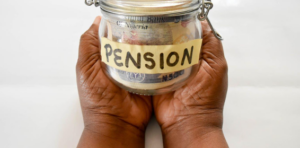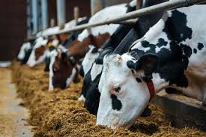Renewing Jamaica’s soil
Phase one of the Jamaica Soil Regeneration Project (JENESYS) started in Sept 2024 in seven parishes across Jamaica. Having completed the first phase, project lead Nicola Shirley Phillips updated the Freedom Come Rain on its progress so far. Mrs. Phillips is past president of the Jamaica Organic Agriculture Movement (JOAM), which has oversight for the initiative.
She explained that the project was birthed out of a farmers’ business conference held about two years ago. “The Minister of [Agriculture] came and offered the organic sector $50M in the form of fertilizers and we pretty much rejected that offer because we know that all fertilizers are salts,” she said. “They asked us what we would like to do and we gave them a list of 11 different strategies that would allow us to improve Jamaica’s soil. We saw what had happened during COVID-19, that things that were normally imported couldn’t come in, so we wanted to give people a fighting chance, teach them how to fish.”
It was Christopher Binns, a board member of JOAM, who actually chose the name for the project, Phillips revealed. And it is quite apt as the entity is set on renewing not only the soil of Jamaica, but also restoring love and regard for the land.

Phillips expressed gratitude that the Ministry of Agriculture listened and made the project a reality. And even though the budget was reduced to $35M, she said the project team remained committed to its implementation, training whoever expressed an interest in attending the workshops rolled out between September 2024 and January 2025 in Kingston and St. Andrew, St. Catherine, Portland, St. Thomas, St. Ann, and St. Mary.
With farmers and back-yard gardeners being the main target groups, the objective was really “to re-train persons in how to care for the soil which is being destroyed by use of petro-chemicals. So that we will actually have soil left, not dirt but soil,” Phillips warned.
Under the guidance of an “amazing team of instructors,” some 800 persons, including master farmers, have been trained so far. Topics included composting and making compost piles, effective microorganisms (EM) and their purpose in the soil, mulching and planting cover crops (especially those that help to trap nitrogen in the soil), land management practices (including hill farming), crop rotation and resting the land so it can rebuild its nutrient base, water management strategies, using biochar, and seeds – how to plant them and become “seed breeders so we don’t have to worry so much about importing.”

One major output for the project will be the establishment of an industrial commercial composting facility.
Participant involvement and feedback were very encouraging.
Clearly, the people were hungry for the opportunity to learn. Phillips said, “People came out and were really excited about the information. The training was practical. They got to participate in it, so it was not just a ‘chalk and talk.’ They were very enthused, and although we were cautioned that they probably would not turn up, since no lunch was provided, they came. They brought their lunch, and they shared, and we actually doubled the numbers that we were asked to work with!”
Phillips is excited about the second phase of the project now being implemented in the western end of the island (Trelawny, St. James, St. Elizabeth, Hanover, Manchester, Clarendon, and Westmoreland). Persons who may have missed a session in phase one are encouraged to register in one of the classes in the western region. “The project is not only for organic farmers either,” the team lead noted. “It is for all categories of farmers, backyard gardeners, school children, the elderly, and anybody who is interested in eating and food.”
What is Phillips’ vision for agriculture in Jamaica?
“My visions are big,” she acknowledged. “I feel like my life’s work is to change agricultural systems from what they currently are and to really educate folks on the divine connection that we have to the world around us, showing how we should be taking care of our soil and changing the way that we look at farming.
“What has been very depressing for me, as I have been driving around the island, is that there is just so much poor food, and so much chemical being sprayed on our food and people are just so numb to it that they don’t see that they are actually forcing us to poison ourselves.”
Calling on churches to speak up about these harmful practices, Phillips also pleaded with farmers who are Christians to take a second look at what they are doing when they use chemicals on their farms. They should re-examine “whether they really care about God and about the world He has created” that includes many interconnected life forms: humans, land and sea animals, insects and plants, the passionate farmer implored.
Having migrated from Jamaica to the USA where she completed high school and went on to run her own business, Phillips returned to her homeland in 2006 to live. It is her life’s mission, she shared, to play her part in cleaning up the ecosystem by showing others how to avoid the use of chemical pesticides, fungicides, and fertilisers so that we can have a much healthier way of living. “Good soil is gold,” she emphatically declared.
Contact (876) 791-1681 or (876) 439-5695 OR joamltd.org@gmail.com for more information.






